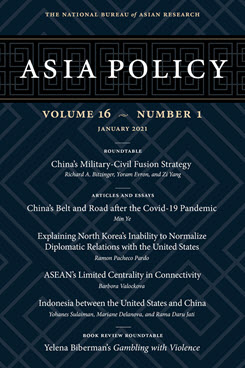Adapting or Atrophying?
China’s Belt and Road after the Covid-19 Pandemic
This article analyzes Chinese policy discourse and activities before and after the Covid-19 outbreak and evaluates the prospects of China’s Belt and Road Initiative (BRI).
EXECUTIVE SUMMARY
MAIN ARGUMENT
From January to June 2020, China experienced the full cycle of Covid-19: outbreak, containment, economic reopening, and return of political life. The country’s policy discourse and activities during the cycle show that the BRI strategy maintains a high level of continuity after the pandemic. Specifically, motivations for the initiative today are similar to those at its launch in 2013, and interests developed during its implementation have grown following the Covid-19 outbreak, albeit with different emphases. Overall, Chinese “middle elites” will continue to help stabilize BRI and globalization during the Covid-19 pandemic and beyond.
POLICY IMPLICATIONS
- The Covid-19 pandemic has intensified geopolitical and societal tensions between China and other countries. Yet beyond political and popular rhetoric, Chinese policy elites are pragmatic and remain committed to BRI and globalization. They offer a stabilizing force against the potential “deglobalization” wave in a post-pandemic world.
- China’s motivations and activities behind BRI have continued during the Covid-19 cycle. As the country recovers from the pandemic, it is likely to pursue BRI with more deliberation at home and more opportunities abroad.
- Inevitably, post-pandemic globalization will have different priorities. In BRI, plans for some hard infrastructure projects are likely to give way to softer and more socially inclusive areas of cooperation, such as information technology, medicine, education, and the environment.
- Going beyond the pandemic, we need to pay attention to discourse and activities by professional and policy communities in China and other countries. The “middle elites” are likely to foretell and shape future trajectories in BRI and globalization.
Min Ye is an Associate Professor at the Frederick S. Pardee School of Global Studies at Boston University (United States). She is the author of The Belt Road and Beyond: State-Mobilized Globalization in China: 1998–2018 (2020),
About Asia Policy
Asia Policy is a peer-reviewed scholarly journal presenting policy-relevant academic research on the Asia-Pacific that draws clear and concise conclusions useful to today’s policymakers. Asia Policy is published quarterly in January, April, July, and October and accepts submissions on a rolling basis. Learn more


